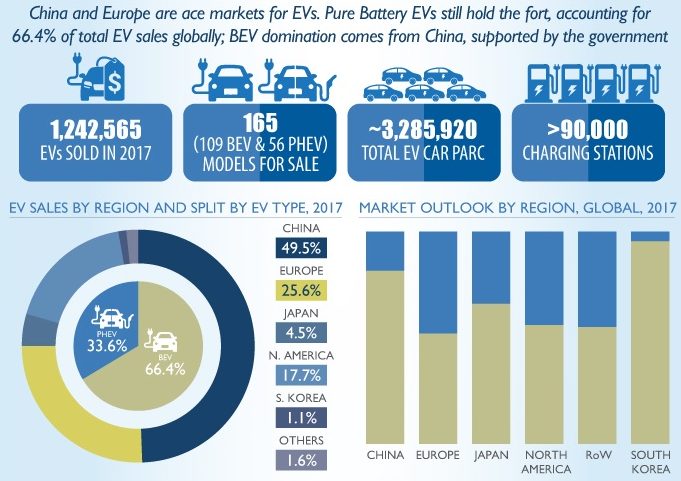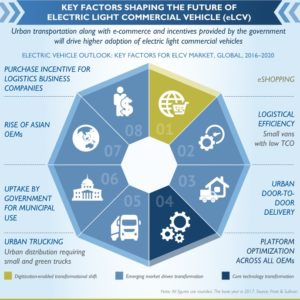According to Frost & Sullivan’s recently released “Global Electric Vehicle Market Outlook, 2018”, the electric vehicle market reached the 1.2-million sales mark for the first time, with more than 165 models available for sale. China is leading the market with 48% market share followed by Europe with 26%.
Solid-state batteries
Solid-state batteries are likely to be the “game changers” of future battery chemistries, as they render 2.5 times higher density than lithium-ion. In the last 6 months, more than 10 automakers have announced future electric vehicle launch plans. Based on the announcements, electric vehicle now have a market potential of about 25 million units that will be sold by 2025; more than 400 models will be made available.

The Tesla Gigafactory is currently 35% operational and aims to produce 50 GWh of batteries in 2018. On full capacity, it will manufacture 150 GWh which will power an equivalent of 1.5 million vehicles with a 100 kWh battery capacity. Toyota, Fisker and BMW are likely to be the first automakers to adopt the battery in its electric vehicles by 2023.
Charging infrastructures
The electric vehicle charging infrastructure challenge has not yet been addressed, as there is a need for more charging stations globally.

Currently, the density of charging stations is high in limited areas or regions where an electric vehicle sale is highest.
Costs and market
Electric vehicles are likely to cost the same as conventional cars by 2020 which will be a huge threat to the conventional car industry. The EV industry will no longer require financial support from the government to regularise the price of an Electric vehicle in the form of cash incentives.
Logistics companies, such as DHL, DPD, TNT, etc., are switching to a 100% electric fleet by replacing current conventional vehicles with electric vehicles that are equally competent and a perfect fit for the business model. OEMs are shifting to 100% electric vans by 2020. 11 OEMs have announced electric vehicle milestones and targets.

If all the announcements made so far were to come true, there will be about 25 million electric vehicles sold by 2025 or 20% of all cars sold would be EVs.
Energy and petrochemical companies have started investing heavily in establishing electric vehicle charging stations, as they are likely to be the biggest beneficiaries of the electric vehicle market. Shell acquired the largest infrastructure operator “The New Motion” in the Netherlands which owns a network of 30,000 charging stations.







